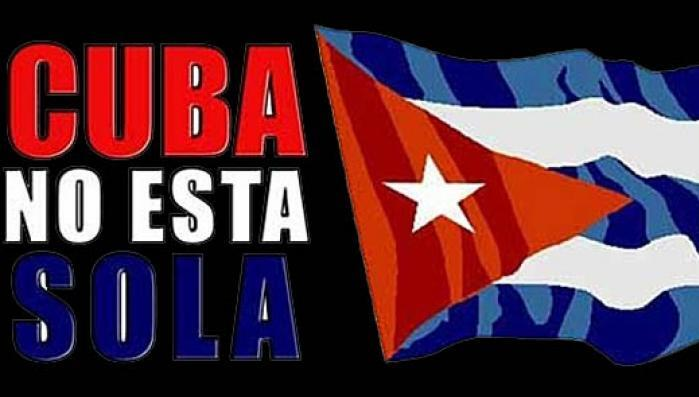
More voices in favor of Cuba
By María Josefina Arce
At the same time that the request to the United States to lift the blockade on Cuba to advance in the recovery after the devastating passage of Hurricane Ian through western Cuba is growing, another demand is also gaining ground: to remove the Greater of the Antilles from the illegitimate list of countries sponsoring terrorism.
Around 300 faith-based organizations, churches, believers and activists from 23 nations joined the request made in recent days by personalities, legislators and governments.
More than 80 Colombian congressmen and congresswomen recently made similar statements. Colombian President Gustavo Petro, for his part, described it as an international injustice to have Cuba in this status as a country that promotes terrorism.
The Caribbean nation had been removed from that list in 2015 during the administration of then President Barack Obama, as part of the process of normalization of relations between the two states, initiated a year earlier.
But in January 2021, a few days before Donald Trump left the White House, his administration once again incorporated Cuba in that arbitrary list, which includes countries that are not to Washington's liking.
Conveniently, he once again left aside the neighbor to the North, which is the largest of the Antilles, victim of terrorism from U.S. soil, where ultra-right groups of Cuban origin that have forged countless criminal actions against our people are based.
It also ignores the 19 international agreements signed by Havana related to the fight against terrorism, and forgets that our territory has never been used to organize actions of this type against another country.
Cuba has always defended international peace and security. Under its pro tempore presidency of CELAC, the Community of Latin American and Caribbean States, the region was declared a peace zone.
Havana also hosted peace talks between the government of President Juan Manuel Santos and the former guerrilla Revolutionary Armed Forces of Colombia-People's Army, which culminated in the signing of a historic agreement.
The inclusion of Cuba on this unilateral U.S. list further hinders the archipelago's progress by restricting economic assistance and access to loans.
Financial institutions have another reason to avoid operations with Cuba, and companies from all over the world are restrained in their interest to have a commercial relationship with our country.
The maintenance of the economic siege and the inclusion of Cuba in the list of countries sponsoring terrorism impose serious limitations to the efforts made by the country to advance in the recovery from the strong impact of Hurricane Ian, after two years of pandemic due to COVID 19.

